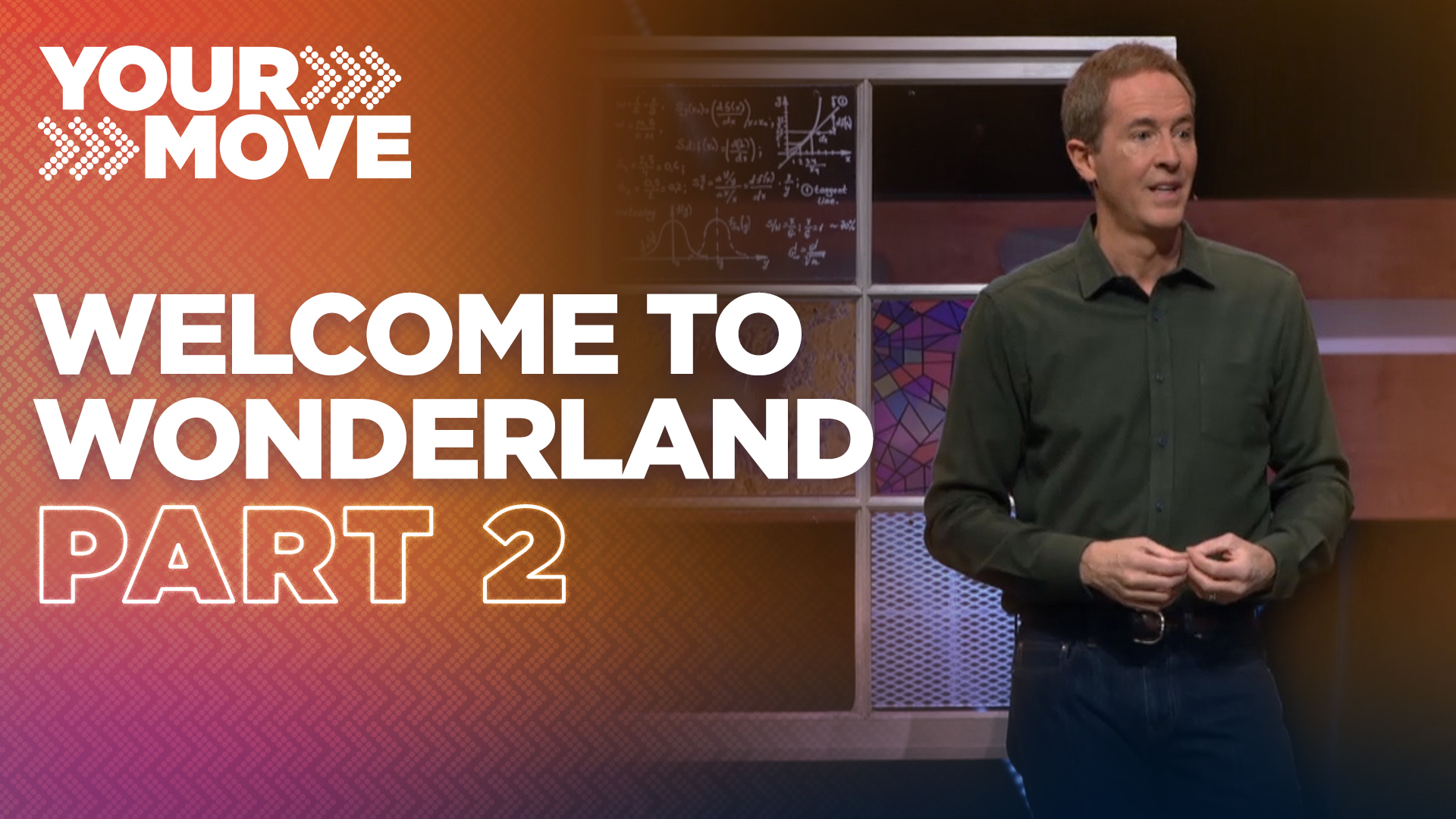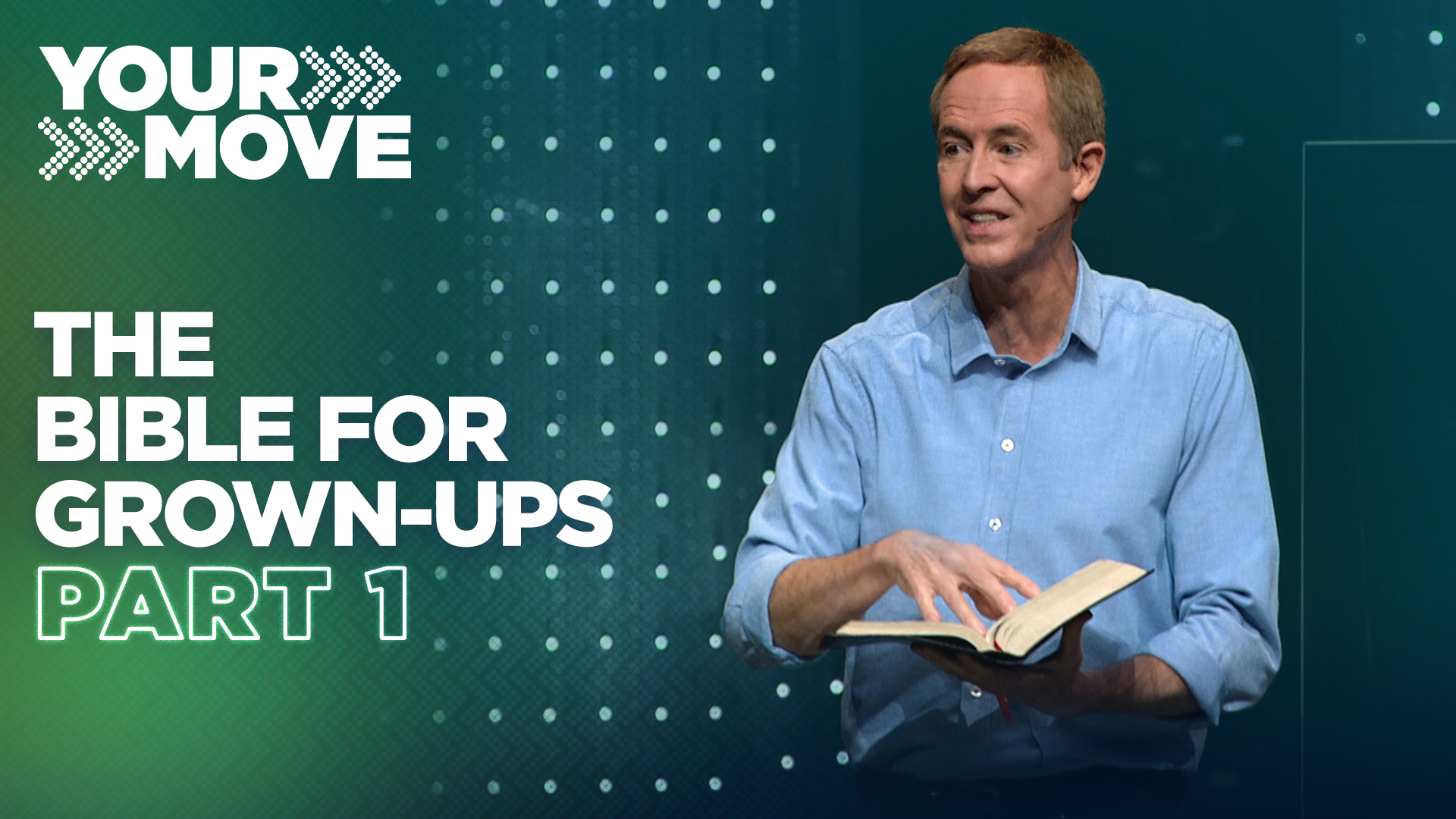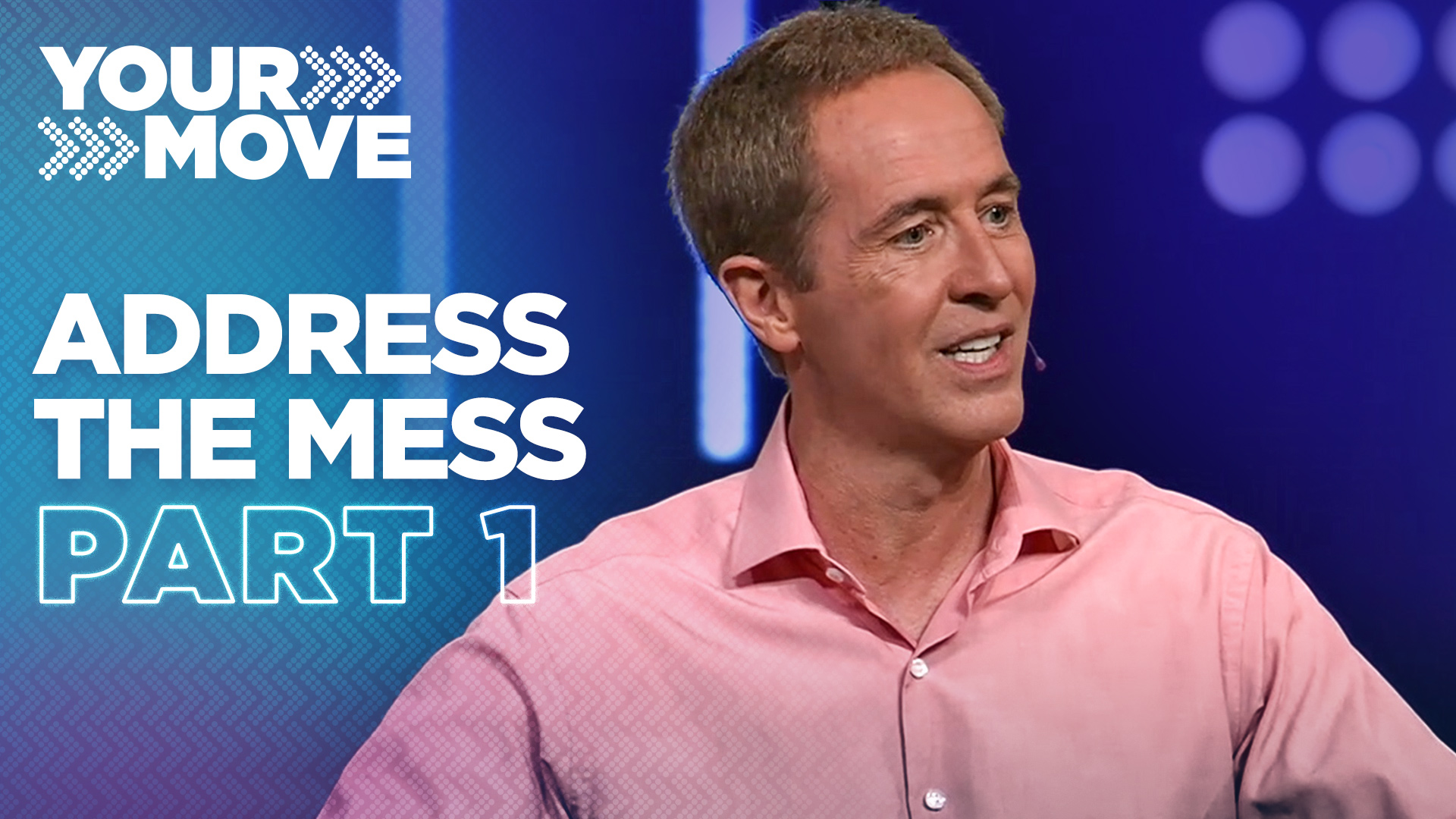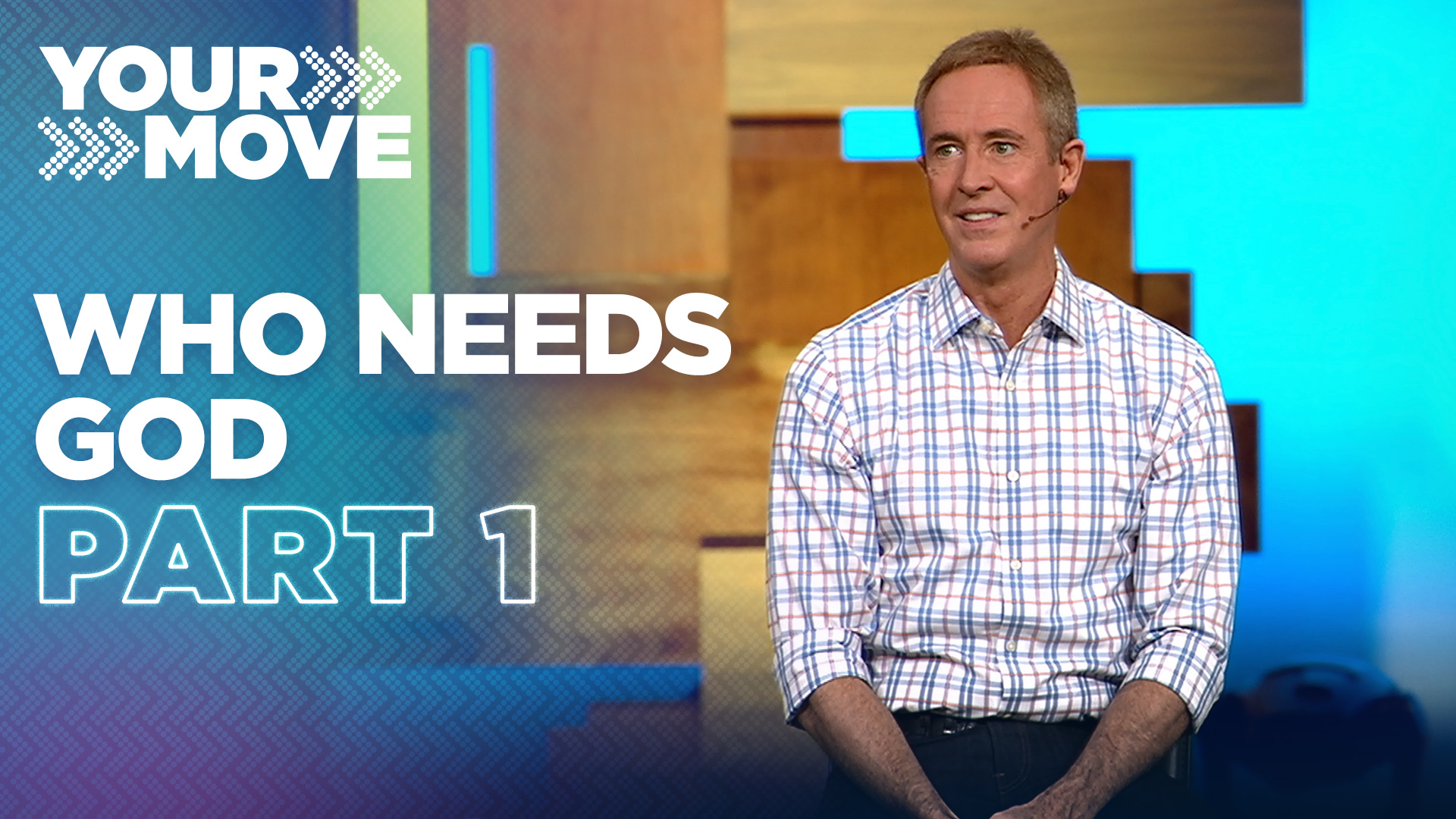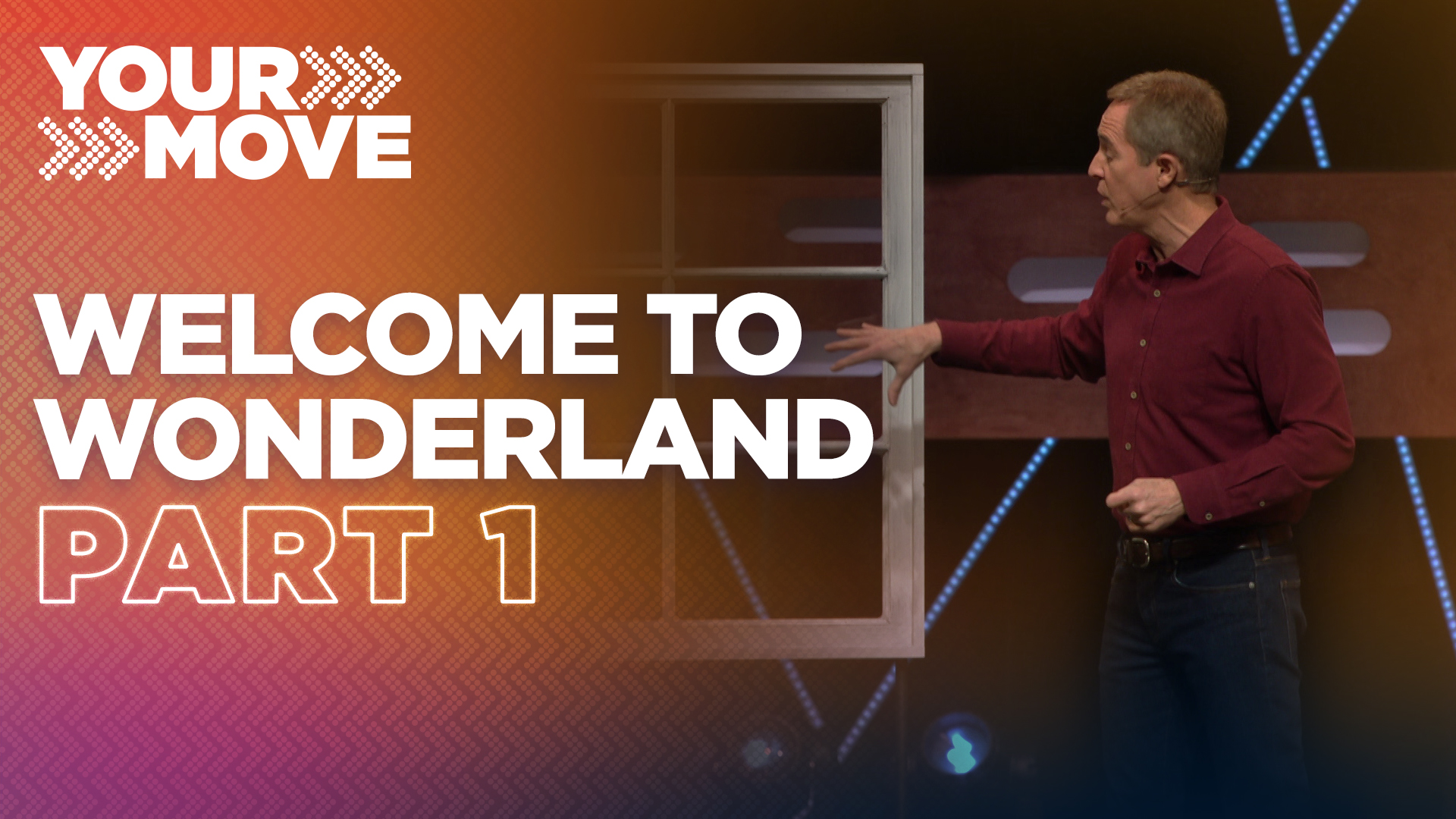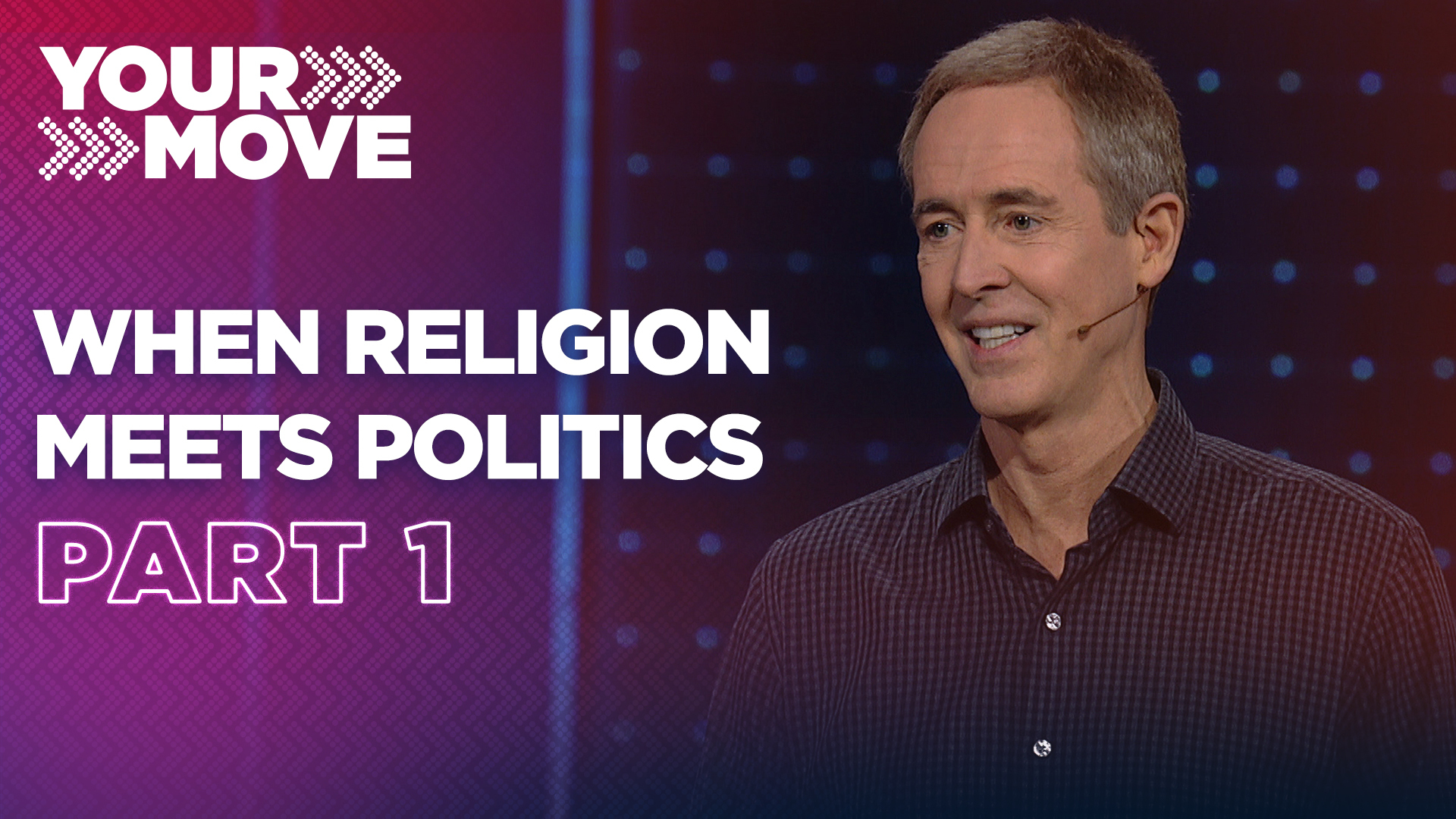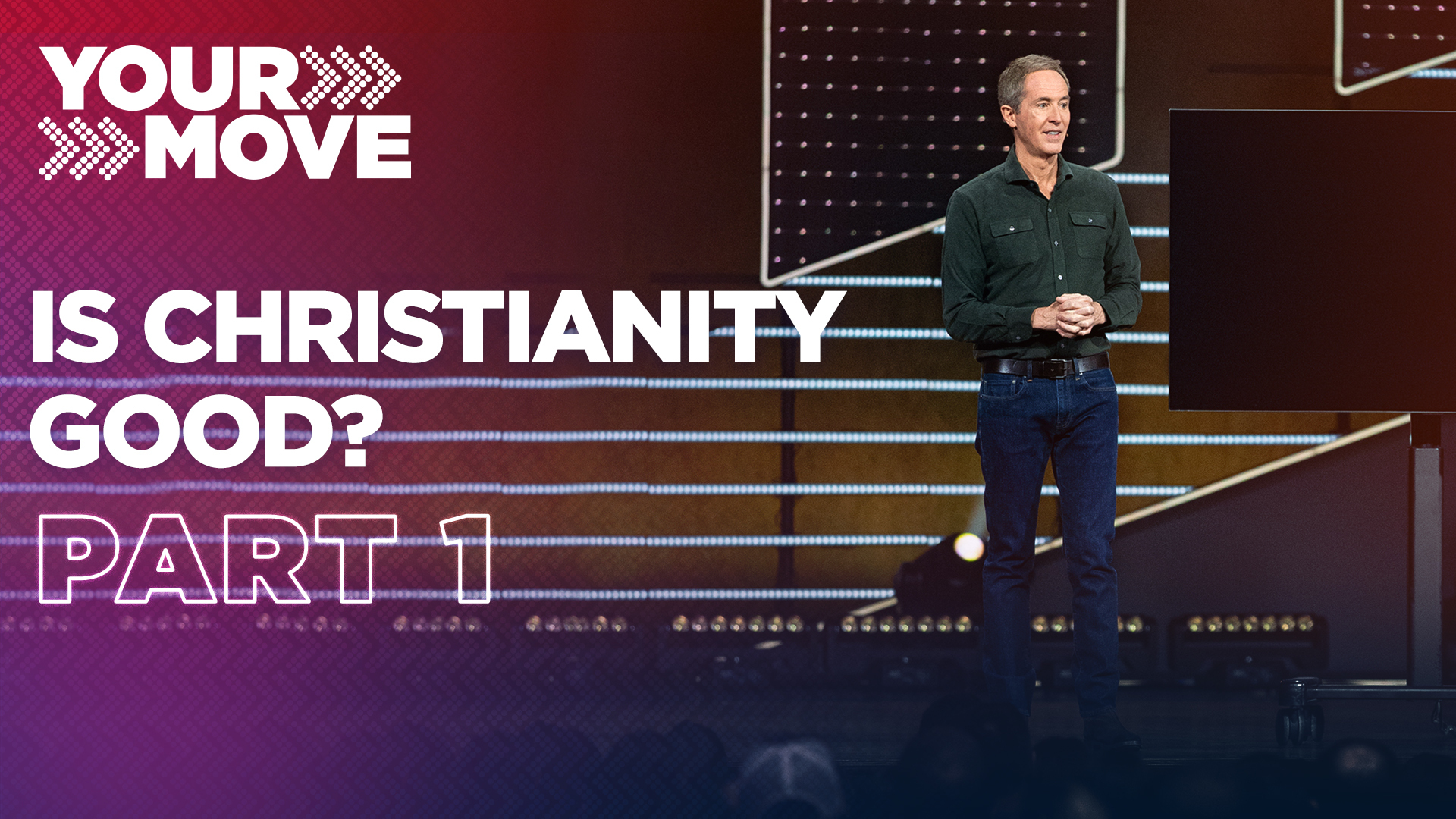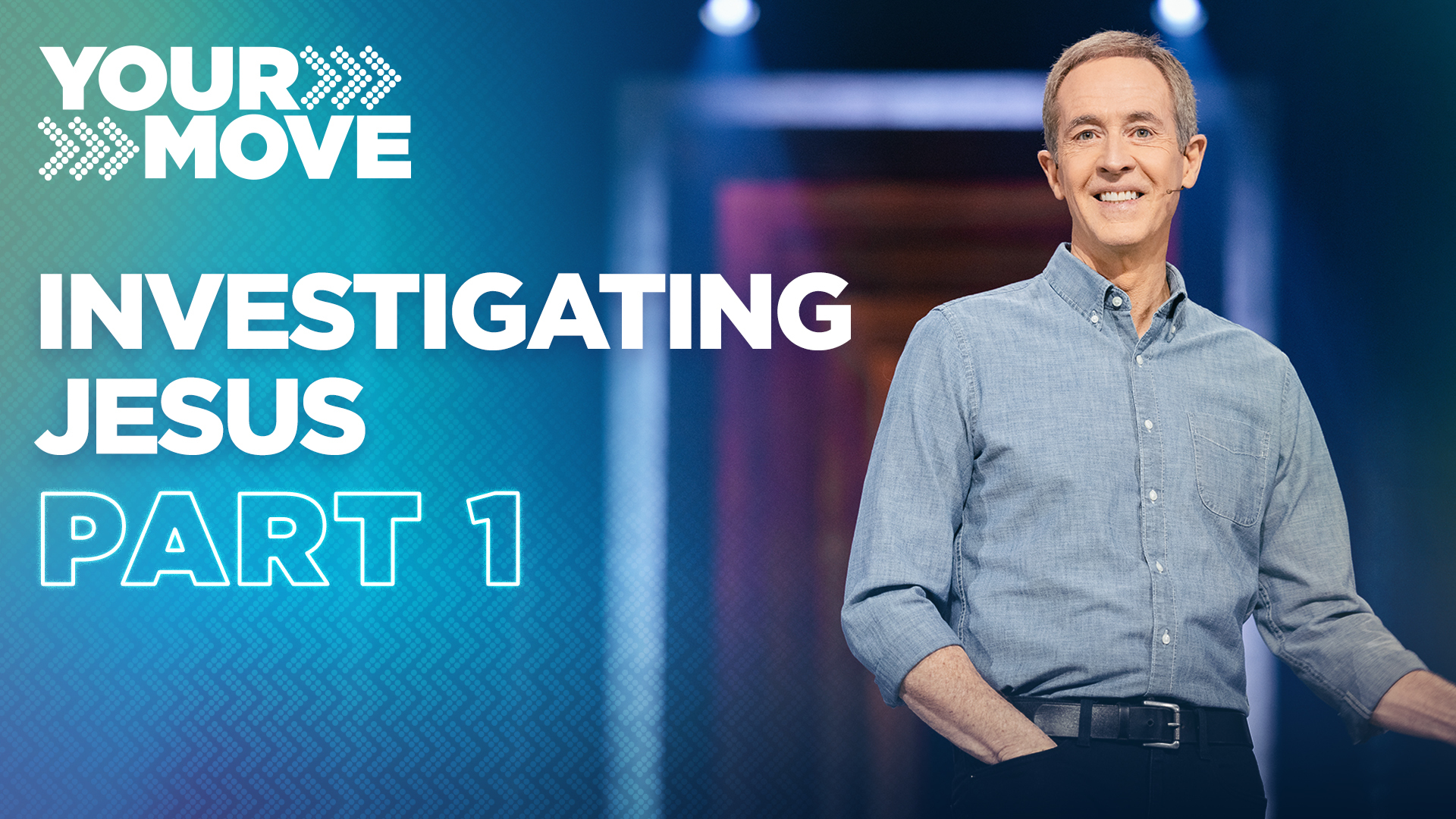What do we do with life’s big mysteries? How do we find peace with our unanswered questions?
- We all grow up with a framework for making sense of the world. Which best describes yours: religious, academic, scientific, moralistic, or something else? How has your outlook on life changed over time?
- Have you ever experienced a time when what you thought was true no longer made sense? Explain.
- For you personally, what is the “price of admission” to faith? In other words, what would it cost you?
- Was there ever a time in your life when your faith was solely dependent on a church, religious leader, personal experience, or the Bible? Would your perspective change if it was focused on Jesus instead?
NOTE: The following content is a raw transcript and has not been edited for grammar, punctuation, or word usage.
So, what do you wonder? What do you wonder? Perhaps, this is one of the greatest things about being alive and being human and if you’re a Christian like me, you believe this is a gift God gave humanity. If you’re not a Christian or not even a theist, I’m sure you have a theory as to how this happened. But what’s undeniable is you have the ability and I have the ability, we have the capacity to wonder and sometimes our wonder leads to fear and sometimes our wonder leads to joy, and sometimes our wonder just leads to more wonder.
My wife, Sandra, her grandmother lived to be 100 years old and we would go visit her and when we would leave, I would say to Sandra, “I wonder what she wonders about,” that’s what I would say, “I wonder what she wonders about, I wonder what she thinks about.” When you’re 100 years old and you’re looking into the future and there’s just not a lot of future left, probably, what do you wonder about?
She was alive from President Taft to President Obama. Think of all the wondering through all of those years and how what she wondered about changed through the years. What do you wonder about? What did you wonder about?
We all wonder and we all wonder through a frame of reference, some sort of context. In a sense, there’s a sense i which we look out this imaginary window and we wonder what’s on the other side as it relates to faith, as it relates to the future, our children, just all the kinds of things that human beings wonder about. And the reason that we wonder is because our frame of reference or our window, the reason that we wonder is our frame of reference or our window, it doesn’t provide us with all the answers. And as our frame of reference changes and as we grow older, as we’re more educated, as we have more experiences, some of the mysteries in life are resolved, but every time one is resolved it leads to more wonder.
Now the truth is all of us, all of us have a frame of reference. All of us have a framework or frame of reference that helps us make sense out of life and helps us make decisions that make sense. You have one, we all have one. It may not be very defined. You may not be able to come up here and tell us what your frame of reference is for life, but you have one. It’s your frame of reference that determines for you right from wrong, just from unjust, important versus what’s not important, fair versus not fair. It’s your frame of reference that determines what you believe. It’s your frame of reference that determines to some extent how you should behave, not how you do behave, but how you should behave. And it also determines what you think you can hope for and what’s worth hoping for.
The other thing about all this is that most of us inherit this, right? And we’re not a blank slate. By the time we’re children, somebody has begun shaping and forming our frame of reference, how we view the world, the window through which we interpret the circumstances in the events of life. If you’re like me, perhaps you were raised with a religious framework or maybe you were raised with a kind of religious framework.
Or maybe you were raised with a purely academic framework; that it’s all about the head. It’s all about the mind. Or even more specific, a scientific framework, or perhaps a combination of those two, or maybe a moralistic framework or almost a legalistic framework where you were taught, this is how you behave, this is how you behave. Your entire framework for life was behaving the right way you have to behave correctly.
Or perhaps it was opportunistic that is, you look out for yourself, always look out for yourself. Nobody else is gonna look out for you. Or perhaps even though the term wasn’t used, it was more like karma. That stuff happens for a reason, or maybe fate, stuff happens for no reason. But to some extent, whoever raised you, raised you within the context of some framework and they handed this off to you and all of us, because we were children, what did we do? We adopted it. And then as we got older, as we went to school and as we learn, and as we realized how much smarter than our parents we were, we began to adapt it.
And then some of us realized our parents were smarter than we thought they were. And we went back to their original framework and readopted it. But some of you, some of us, perhaps, many of us abandoned it. And the reason we abandoned it is because as we experience life and as we begin to continue to grow, and as we continue to learn, much of the framework we were handed, much of the framework that we were given, that we inherited, it just didn’t make sense anymore. It just didn’t line up with reality anymore. And when life doesn’t make sense or when life doesn’t add up with our framework, it leaves us wondering. And it’s disturbing. If you’ve ever learned something or observed something or experienced something that just didn’t line up with the way you thought the world worked, it’s very disturbing. It’s bewildering.
And not only does it leave us wondering when it comes to our personal lives and when it comes to our personal behaviors and when it comes to the way that we manage life and our relationships, sometimes it leaves us wandering, like a dog that suddenly got off the leash. Like the canary that suddenly was out of the cage. And the truth is, in most of our experience, attest to the fact that when we wander, we do not generally wander in good directions.
So for the next few weeks, I wanna talk to those of you who would say, “You know what? I was raised with some sort of religious framework.” Maybe it was Christianity, maybe it was some other religion, but it was some sort of theistic framework. Maybe it was very specific. Maybe it was ill-defined. But over time, life just didn’t line up with what you were taught, with what you believe, with what may be the church presented to you.
And over time, you lost your faith. And maybe you can remember that tension on the inside; it was a little bit disconcerting. In fact, maybe you went through a phase where you actually defended the religious framework that you were brought up with and while you were defending it, you were questioning it all at the same time.
And then you would lie in bed at night and what would you do? You would wonder, and you would think about this new information, the book that you read, the article you were given. The hypocrisy perhaps you saw at home or maybe the hypocrisy that you saw at church. And at first, the tension, it was very disconcerting. And then when you finally gave up your religious framework, it felt so liberating. You were free and you were so smart and you had more information than your parents, and you could argue circles around your friends and suddenly, a whole world opened up to you that was so much larger than the religious world that you were brought up in. And then the wandering began, didn’t it? It always does. Because oftentimes wonder leads to wonder. It doesn’t have to. But whenever we let go of a framework that we grew up in, wondering always leads to wondering. It always leads to wondering because as we develop a new framework, a new world view or a new you view, we begin to try to match our behaviors with the framework that we’ve adopted, it’s just human nature to do so.
So, as we move toward the celebration of Christmas, you can’t avoid Christmas, you can reinterpret it or decide it doesn’t mean anything, and it’s just a traditional holiday, that’s fine. But as we move toward that because you can’t avoid it, I want you to consider, I wanna invite you to consider reframing your life around or re-inviting the person of Jesus back into your framework. And it doesn’t have to be the version that you left as a child or the version that you left as a college student but I want you to at least consider it.
Now, I’ve been doing this a long time so I know how some of us think, I know how I would think. And for some of you, you would say, “You know what? That’s interesting and if it’s just an act of purely academic exercise and if it’s just purely a mental exercise, okay, I might follow you through this. But you need to understand Andy, I feel like the price of admission or the price of readmission, the price of saying, I’m gonna somehow recreate a framework around something religious or something that has to do with Jesus, I feel like the price is too high because I think the price would be my mind.” Because of course, your assumption, I understand this, your assumption is that Christianity requires faith and that faith leaves in its wake reason and experience.
And here’s some great news and perhaps no one told you this before. The original version of Christianity did not require anyone to sacrifice what they observed, what they knew and what they experienced. You may feel like the the price of readmission is your freedom and you’re right about that because following Jesus or reframing your life around the person of Jesus, it will cost you something, it will require you to say no to you. But hey, every frame of reference, every world view, every you view requires you to say no to you. Because regardless to your frame of reference you have some oughts, correct?
You have some ought nots. Regardless of your frame of reference, you have some regrets. You have some things you wish you could go back and undo. So the whole idea of having to say no to you is not new, it’s just which no is gonna be part of your frame of reference. Besides, There may be, there may be a fatal flaw to your current frame of reference and the fatal flaw, this is the offensive part, it might be you. Come on, really, what do you know? What do we know? What do you know? What do we know? Every season, isn’t this true? Every season of our life, our frame of reference changes. We hated our parents for taking us to the dentist and now we drive ourselves.
[laughter]
What happened? At every season of life and every season of life, this begins to change. So who’s to say, come on let’s be honest, okay. Isn’t it true that in every season of life and every season of life and as you learn and grow, your frame of reference continues to morph and change. So isn’t it possible that your current non-religious or non-Christian, or non-whatever frame of reference, isn’t it possible that it’s incorrect?
You remembered, you were absolutely sure, you were sure she was the one. You were sure he was the one and now you’re looking for a way out, right? We had to have it, you remember it? You lease it, you bought it, you borrowed money for it. You had to have it. We had to have it. Now we wish we never purchased it. We had to go, I just gotta be there, I’ve gotta go, I just can’t miss it. It doesn’t matter how much it cost, I have to be there. And now you wished you’d never gone.
So, just to bother you. Come on. What do we know? Because here’s what I know about you and here’s what you know about me. My rame of reference, your frame of reference, my worldview, your world view. My way of seeing and interpreting the events of the world and your way of seeing and interpreting the events of the world, it’s limited.
Now, here’s what Christians believe, in fact if you grew up as a Christian you may not know that this is what you believe ’cause no one told you and I’m so sorry about that. In fact, it’s one of the reasons you left and it’s one of the reason it was so easy for you to leave.
Christians believe, Christians believe that while mankind has continued to grow in our knowledge, bcause we’re able to write things down and pass it on to generation to generation to generation, that while all of that happened over time, that God rushed ahead, so that we could know what God is like. So that instead of our knowledge building and building and building, and finally there’s a break through one day, and we finally discover what God is really like, God did something extraordinary and what Christians believe, and what I want you to reconsider if you don’t consider it or if you’ve abandoned this way of thinking, Christians believe that God sent someone to our side of the frame to be a point of reference, .
And the Bible, the English Bible, is divided into two parts. You probably know that. There’s the Old Testament and the New Tetament. And in that second half of our English Bible there’s a document called Hebrews, and the reason it’s called Hebrews is we don’t know who wrote it.
It’s called Hebrews, because it’s sort of a long sermon that was written to Jewish people in the first century, Jewish people who, get this, who had decided that Jesus was their Messiah. And so the author of this document we call Hebrews, actually writes this sermon to say to them, “Hey, do not abandon your faith, don’t walk away from your faith and Jesus,” and he tells them why they shouldn’t.
And the answer to the question of why they shouldn’t walk away from a framework that was build around the fact that God sent someone to our side of the frame to be our point of reference, the answer to the question why they shouldn’t walk away was really just one word. So I’m gonna read you a few verses from this document, then I wanna ask you a question and then we’ll be done. Here’s what he wrote. “He said therefore,” and this first part is so amazing, “He said therefore, since we have, since we have,” past tense, present tense, “Since we have a great high priest which was,” the Jewish people got into that ’cause the high priest was the person between the rest of the world and God. “Since we have a great high priest, who has ascended into heaven,” because Jesus’ closest followers said, “I don’t know, we were there, He gave us this great message and then He was gone and the best thing we know, the only thing we can imagine is that He went to heaven,”
“Since we have a great high priest who has ascended into heaven, Jesus, the Son of God, since we have Him, that’s the reason we should hold firmly to the faith we profess.” Now, this is the whole shooting match right here in a couple of verses, here’s what he’s saying, and let me tell you what he’s not saying. He’s not saying, “Since everything is going well, since everything is working out, since we’ve got everything we need, since we’ve resolved all the mysteries of the universe, since we have resolved all of our wonder, since we have answers to all of our questions, let’s continue to follow Jesus,” that’s not what he said, that’s what we want. But he says, no. “Since there is Jesus, since God sent Jesus, we should hold firmly to the faith, we profess later,” he says this, “Therefore, since we are surrounded by such a great cloud of witnesses,” now he’s just gone through a list of Jewish heroes who did extraordinary things that most of them are documented in the Jewish scripture.
He says, “Since we have this whole group of people behind us, here’s what we should do, going forward,” and the reason he leverages this great group of people that were famous to Jewish people, not so much to those of us, who aren’t Jewish, is this, that the Jewish people believe that God was gonna do something in the world for the world. Jewish people believed since the time of Abraham that God was gonna do something in the world for the entire world, which was preposterous, because Abraham said that God told him that he would become a family and become a nation and that through that nation, this was the part that in ancient times didn’t make any sense, that the entire world would be blessed.
And so everybody following Abraham believed that God was gonna do something in the world for the world, in the world for the world, in the world for the world. And Abraham died and didn’t see that promise fulfilled, and the generation after Abraham died and didn’t see that promise fulfilled, and the generation after that died and didn’t see that promise fulfilled. And the author of Hebrews says, “Hey, listen, you need to hang on to this faith that centers on and frames out who Jesus is, because many, many, many generations have come and gone hanging on to clinging to the promise that God was gonna do something in the world for the world. Invokes, God has done something in the world for the world. So, if that group of people were able to maintain faith as they looked forward to something, how much more so those of us who have experienced the fulfillment of that promise in our world?”
They were on the fulfillment side of the promise. They were on the fulfillment side of all those predictions. God had, in fact, done something in the world. So, he’s saying to his audience, “Hey, why would you let go of the very thing that God had promised?” And these people, they believed even though they didn’t see it fulfilled. They hung on to, they clung to that promise. They went to their deathbed going, “I wonder if we’re wrong. I wonder if that’s gonna happen. I wonder if what we were told God told Abraham is true.” And in fact, it turned out, God has done something in the world for the world. So, he’d said to his first century audience, “Of all people, of all generations, we need to maintain our faith. God has done what our forefather… The people who came before us believed he would eventually do in the world.”
And he says this, “So, therefore since we are surrounded by such a great cloud of witnesses, let us throw off anything that hinders, anything that gets in the way of that, and the sin that so easily trips us up or entangles us or it gets all wrapped around our ankles.” For some of you, here’s what that verse means. The sin, because you were raised with a religious frame of reference, the sin, because you were raised maybe in church, the sin that caused you to feel guilt, and then you got tired of feeling guilty. And there were only two ways to resolve it. Either you dive back into this frame of reference that says, “What you’re doing is wrong,” or you get a new frame of reference. You decide none of that’s true.
You decide, perhaps, there is no God or if there’s a God, it’s not a personal God and that impersonal God could care less how you live your life, and you changed your frame of reference and the guilt level went down and the shame level went down. And suddenly, you felt better about yourself, even though you hadn’t changed anything you were doing or not doing, you just changed the way you viewed the world.
How did I know? Because for year after year after year, I’ve heard that story. “Andy, I just got tired of feeling guilty and I didn’t wanna stop and I didn’t wanna get out of the relationship and I didn’t wanna change my way of living. So, I just dismissed the entire frame of reference that told me I was wrong.” But do you know what else I hear, and maybe this is your experience as well? “But even though I change my world view, even though I got a new window, even though I began to see the world differently, there was something on the inside that was never, never, never resolved. I was never fully, be honest, I was never fully at peace.” And he goes on. He says, “And let us run with perseverance or endurance the race that’s marked out for us.” In other words, there is a frame of reference for our lives. There’s a frame of reference that allows us to know who God is and how we’re to live our lives in spite of what we know or don’t know scientifically. And this frame of reference, this organizational principle, this true north, this big idea, this framework for everything, it’s not a philosophy and it’s not a religion, it’s a person.
And the next few words that he says are so extraordinarily important, and this is the reason we’re talking about it. He says to this Jewish group of people, “Look, you are on the fulfillment side of this promise that God made to the world. God has fulfilled His promise by sending His Son into this world. And men and women,” he would say, “You’re beginning to lose focus. You’re beginning to lose perspective and I need you to refocus your attention, not on a book, not on an institution, not on a church, not on a leader, but on a specific person,” and this is so powerful, “Fixing your eyes or fixing our eyes on Jesus.” Now, real quick, your religious upbringing, whether it was in church or a synagogue, or a temple or whatever it might be or maybe your marginal religious experience as a kid, maybe you didn’t grow up going to church but you had a friend that would invite you to church
Chances are, your religious framework, regardless of how tightly defined it was or loosely defined it was, chances are it focused you on something. Perhaps it focused you on the pastor or the priest because he was so great or she was so great, and they were so funny or they were so relevant. Or maybe they focused you on the church, it was all about church. “You got to be in church. This Sunday, we got to be in church. You got to be in church. You got to be in God’s house.” Or perhaps it was the Bible. “This is God’s Holy Word, it’s all true. We don’t understand most of it, but it’s all true. It’s confusing but it’s all true. It’s God’s Holy Word.” And so they fixed your eyes on a book. Or perhaps they fixed your eyes on experience. Maybe it was that camp experience or after church, you went down and signed a card and somebody older than you presented you to the church or you went through confirmation, you had an experience and they said, “See there, you’re in. You’re one of us.
Or maybe circumstances. Maybe you grew up in a religious framework or had a religious framework that was all about God comin’ through and God answering prayer and see, if you do the right thing, the right things will happen and if you say the right things, the right things will happen and if you hang out with the right people, the right things will happen, and you did all of that and the right things didn’t happen. This is why so many people who grow up with even the Christian framework walk away from their Christianity. Because unfortunately, the group they grew up with, and it was unintentional, fixed their eyes on something other than what the author of Hebrews and the writers of the New Testament tell us where to fix our eyes on. We’re to fix our eyes on Jesus. Why?
He tells us, because Christianity didn’t begin with church. And Christianity didn’t begin with a book. And Christianity didn’t begin with an organization, it didn’t even begin with a philosophy, it didn’t even begin with theology. That Christianity began with a person. The person that God sent to our side of the frame to be a point of reference Here’s how He says it, “Let us run with perseverance the race marked out for us, fixing our eyes on Jesus the pioneer, that is the founder and the originator of faith.”
Again, Christianity didn’t begin with a philosophy or a theology or a belief system, it began with a person. He says this, “Not only the pioneer but also the perfector of faith.” That is one, that is a person that brings something to a successful conclusion, a perfect landing, the perfect parallel parking. He says that Jesus is the author and the originator of our faith. The whole thing stems from Him. It all rests on Him. It begins and ends with the person of Jesus. And then he gets into the details, and again, if you grew up in church or around church, these becomes sort of fairy tale stories, it becomes so romanticized because we’ve never seen a crucifixion, we’ve never smelled a crucifixion, we’ve never walked by a crucifixion, we’ve never seen a body taken down from a cross, we’ve never smelled the aftermath of a group of people who have died and their bodies have been left to decay.
But the group of people that read this letter, this sermon, they had. And he says this, “Who for the joy or for the joys set before Him, He endured the cross, scorning at shame, and sat down at the right hand of the throne of God,” and then these powerful two words, ’cause he’s drawing them back in to a different frame of reference, the one that they had lost focus of. He says to them, and I think he says to me and I think he says to you, “Consider Him, consider Him, re-consider Him.” Consider His life, not what you’ve been told about Him. Consider His teaching, not necessarily what you’ve been taught. Consider His claims, not necessarily the things that people have claimed about Him. Consider Him, not your experience. Consider Him, not your circumstances. Consider Him, who endured such opposition from sinners… And here it is. So that you, his first century audience and you, so that you will not grow weary and lose heart or lose faith.
The reason perhaps that you walked away from a frame of reference, that referenced Jesus, is because perhaps somewhere along the way, your focus was no longer Jesus. It was something or it was someone else. Because God showed up on our side of the frame to be our point of reference. So here’s a question as we wrap this up. If once upon a time you wondered and then you wandered, if at some point in the past, maybe college, maybe right after college, maybe right out of high school or after your parents got a divorce or your brother went through that horrific thing and everybody prayed, the preacher said, “If we have enough faith, he will be healed,” and he wasn’t healed.
And then everybody went on with their lives and pretended like nothing bad happened and you were just left spinning in the wind. If you wondered and then you wandered, here’s the question that I’d love you to consider. What was the faith that you lost fixed on and fastened to? If at one point you wondered because it just didn’t make sense anymore and you did away with the religious framework, and you did away with Christianity and you did away with the church, here’s my question for you, as I invite you back as we approach the celebration of Jesus’ birthday, what was your faith fixed on and fastened to? And my hunch is this. It was not fixed on and it was not fastened to Jesus. It was something or someone else.
And the reason it was so easy for you to wonder, the reason it was so easy for you to jettison that frame of reference, is because circumstantial and experience-based faith, circumstantial that if it all works out God’s for me, but if it doesn’t work out, where’s God? Circumstantial-based faith, experience-based faith will not survive the pleasures or the pressures of life. In fact, the pleasures and the pressures of life eventually make faith inconvenient and implausible. So if you wondered and then you wandered, here’s something to ponder. Perhaps your eyes got fixed on the wrong thing, perhaps your eyes got fixed on the wrong person, that’s something to wonder about. And hopefully it’ll create enough wonder that you’ll wander back here next week for part two of Welcome to Wonderland.


